For the last nearly two decades we have been all too familiar with Facebook acting as a homebase for interacting with others virtually. Due to the popularity of Facebook, having an online community on the platform was very convenient since EVERYONE (aunts, classmates, your friend’s dog, and third cousin twice removed…) flocked to “The Book,” as my grandmother would describe it.
Once upon a time, having a group on Facebook was really the only usable option for creating a growing community online.
While Facebook was a great place to meet online for the first bit of the 21st century… times have changed, and the internet has evolved! Facebook was the first mega-successful network to get their foot in the social media door (MySpacer’s don’t come at me), however definitely not the last.
If you are trying to build a thriving community online, there is a good chance that Facebook Groups have crossed your mind. It’s convenient, and it seems easy and accessible. It’s a tempting idea, especially when you don’t know what else is on the horizon.
The truth is, there are a ton of other fantastic Facebook Group alternatives out there, some that you may have never even heard of.
SO, are you interested in looking for an alternative to Facebook Groups? In this post, we are here to enlighten you on the best Facebook Group alternatives that will help you thrive and be a part of a meaningful online community.
- Why search for Facebook Group alternatives?
- What are the downsides of Facebook Groups?
- What should you look for in a group platform?
Here are 21 of our favorite Facebook Group alternatives we’ll be going over:
Thinkific Communities
Why use an alternative to Facebook to build a group?
There’s no denying the incredible power and value of community. Which is why Facebook Groups became so popular over the years.
Facebook Groups are usually the option that stands out the most for content creators who are in search of a free place to host and engage their following. This might be because it’s a familiar name, and the built-in audience that Facebook has, and people are not aware of the many other great platforms that are out there.
Nowadays, there are plenty of enhanced platforms that have become serious competitors, improving on Facebook’s limitations.
Throughout our guide you’ll be able to find a wide range of different Facebook Group alternatives, from simple free community platforms to huge platforms that can be used to build a community-centric business.
What are the downsides of Facebook Groups?
In recent years Facebook has faced many challenges that can make it difficult to build an empowering community there, ranging from usability, data privacy issues, ownership, control, and monetization.
A few reasons that content creators are branching out from Facebook Groups include:
- You aren’t able to own your content. Facebook is the true owner of everything shared on the platform.
- Facebook has strict branding guidelines, and users aren’t able to customize it for their own group.
- It’s easy to get lost in the noise – users feel overwhelmed by notifications of every type, and their messages to members can get drowned out amongst other notifications.
- It’s difficult to reach members. People join your group to get the benefit of your creations, and it’s hard to monitor engagement on Facebook Groups.
- Facebook Groups has no options for creating and hosting online courses… and online courses are a great way to help grow your audience and your brand.
- There is no option to add subgroups – while a big group is powerful, connecting with people in a smaller setting is where deep connections are formed.
- There are many limitations on how you can monetize content on Facebook.
These factors have created a demand for free alternatives to Facebook Groups. There are now platforms where content creators can reap the benefits of what Facebook Groups are lacking, which has led to a shift of people switching ships to move their groups off of Facebook.
Related: The Top 11 Best Online Community Platforms
What should you look for in a group platform?
Now that we have established that there are many Facebook Group alternatives out there, here are some things to keep in mind when searching for a platform to call home base.
It depends on what you are looking for, but generally, when selecting your new platform alternative to Facebook Groups, look for a group that has these key features to maximize your user experience:
- A customizable settings option so you can brand it as your own. After all, your brand is the livelihood of your community!
- Access to technology across all devices, desktops, and TV. This ensures that you can reach your community members and keep them engaged.
- The ability to monetize your group with ads or subscriptions. While Facebook Groups are convenient to set up, they offer zero monetization functionalities. There is no way to charge for access to a Facebook Group.
- Scalable features that can adapt to your growth. The option to customize your group and add features is important for expanding your group over time.
- Knowing that your information is protected, and being in control of your own content!
A community platform should be a safe and uplifting space that gives you the control to create a group that your members will feel connected to, and engaged in.
Top Facebook Group alternatives
Highlighted below you will find an extensive list of a wide range of different group platforms that can suit any niche community.
Thinkific
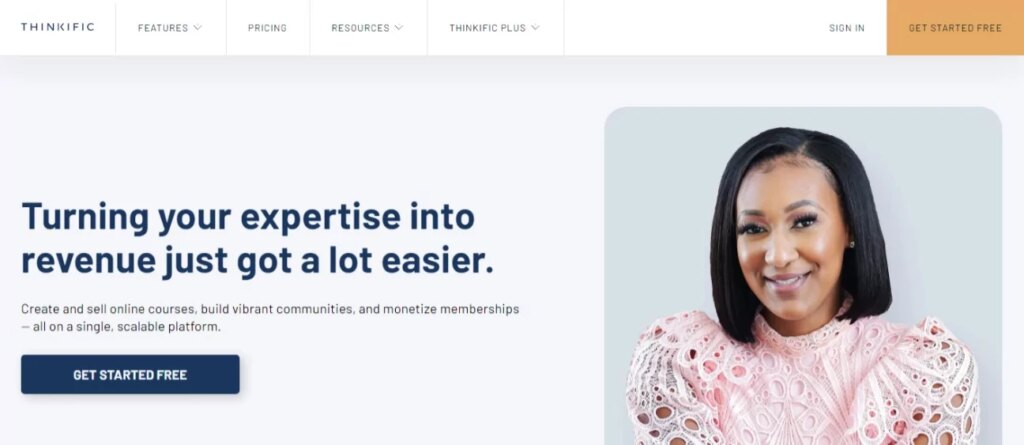
If you’ve been thinking of creating a community attached to your online course, look no further than Thinkific.
This is a powerful but intuitive platform for creating, designing and selling online courses. It doesn’t require you to learn anything special – this convenient platform allows you to customize a well-designed template for your brand.
After your course is done, you are able to add a community to it. This allows your customers to get to know each other, discuss common issues, and share expertise.
Key features:
- Courses and communities in one place.
- Monetization features, with built-in payment processor for digital products.
- White-label customization without coding.
- Get started quickly with an easy-to-use platform.
No-code mobile app builder to host content and community discussions for your audience.
Limitations:
- Offers more of a niche setup for those creating, designing, and selling online courses… or creators looking to get into this space.
Build your business with a collaborative learning experience created and controlled by you, that your students will stay for, and pay for.
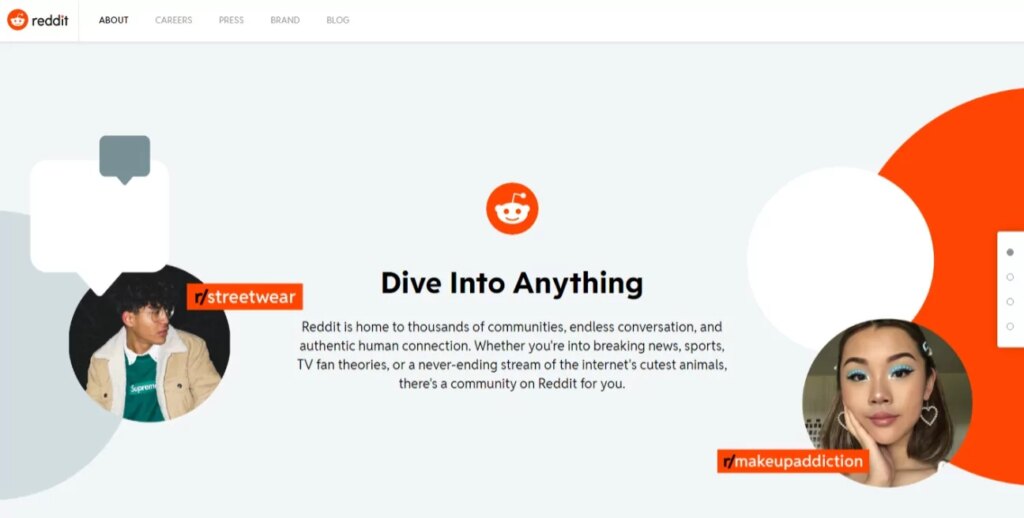
Reddit is a social network website that allows users to create communities known as Subreddits about any topic they choose. It’s a social network that allows anyone to create a community about anything they like.
Key features:
- An easy-to-use platform.
- Free to access.
- An open-source network.
- Offers chat forums for followers to connect.
Limitations:
- No option to monetize your group.
- Difficult to moderate the content of large groups.
- No video-chat option.
- Content can get hidden by people who don’t agree with it.
It is pretty similar to Facebook Groups, but with more control over your own rules for a specific community.
Mighty Networks
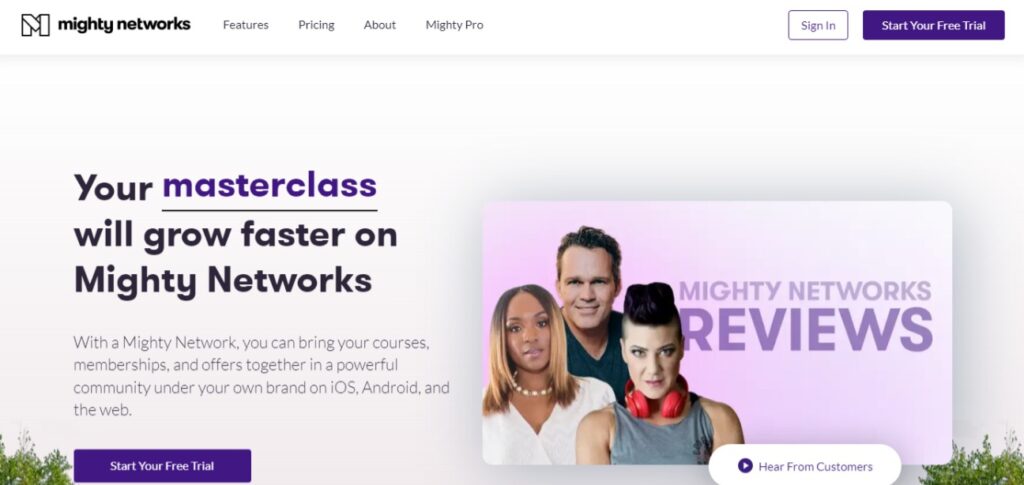
A great option to Facebook Groups is Mighty Networks, a website builder that lets you create your own online community.
Key features:
- Have your own branded website.
- Live-streaming, video upload, video storage, and both direct and group messaging.
- Monetize through online course features.
Limitations:
- Unfortunately, this is not a free platform, but they do have many different pricing options that are available to choose from.
Mighty Networks is an online community platform that is pretty darn close to offering everything that Facebook Groups offer, but under your own brand.
Related:
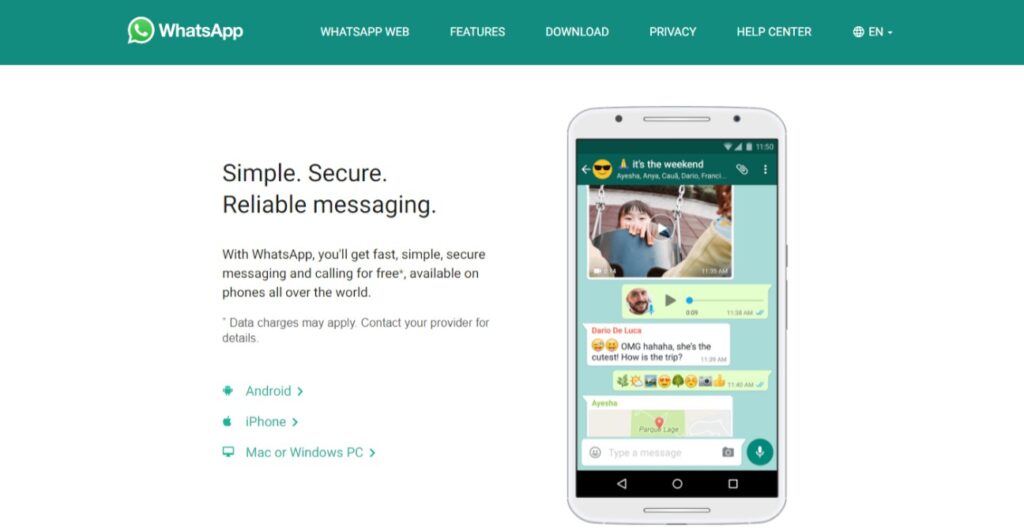
Although not an actual social network, WhatsApp is a very simple, yet efficient, way of connecting with a group of likeminded people.
Key features:
- Private community.
- Can access the app from a phone, desktop, or tablet.
- Send texts, voice calls, or video calls.
- Ability to send documents, audio and video files, and images.
- Can broadcast messages to lots of people at once within your group chats.
- Free to use.
Limitations:
- Have to provide a personal phone number.
- Can be difficult to go back through messages.
This platform is primarily for instant messaging, and it’s a great option for smaller groups.
Kajabi
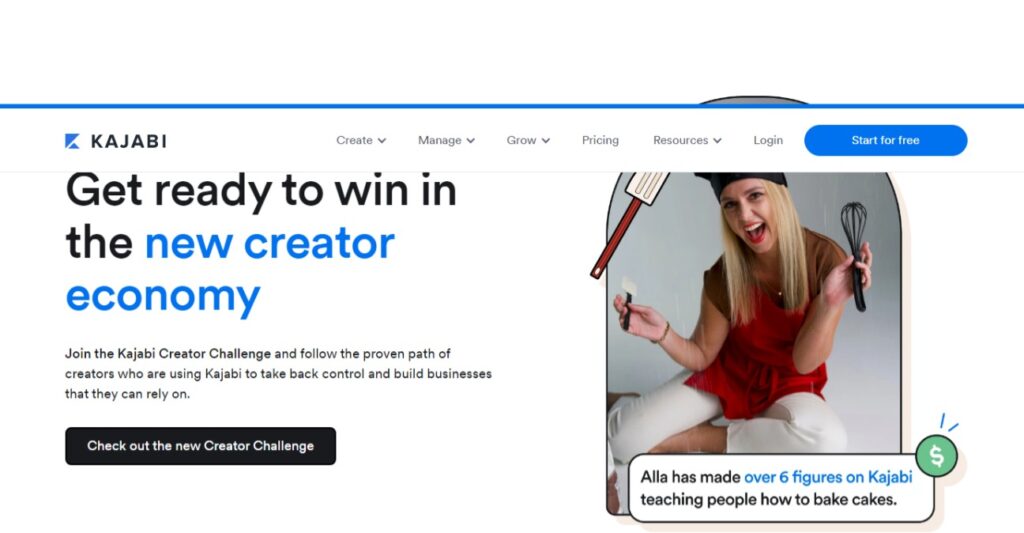
Kajabi is one of the all-in-one online community platforms that can help you monetize your content with custom solutions.
Key features:
- Allows you to customize your own branding style.
- Create discussion posts with comment feeds.
- Offers an assortment of tools to monetize and market your content.
- Has a fully-integrated website.
Limitations:
- Is at a higher price point than other platforms.
- Can take a while to be familiar with the features.
- Usage limits on the number of members you can have in your community.
- Limited multimedia options.
This platform lets you create online courses and provides marketing tools to reach more potential customers.
Related:
Discord
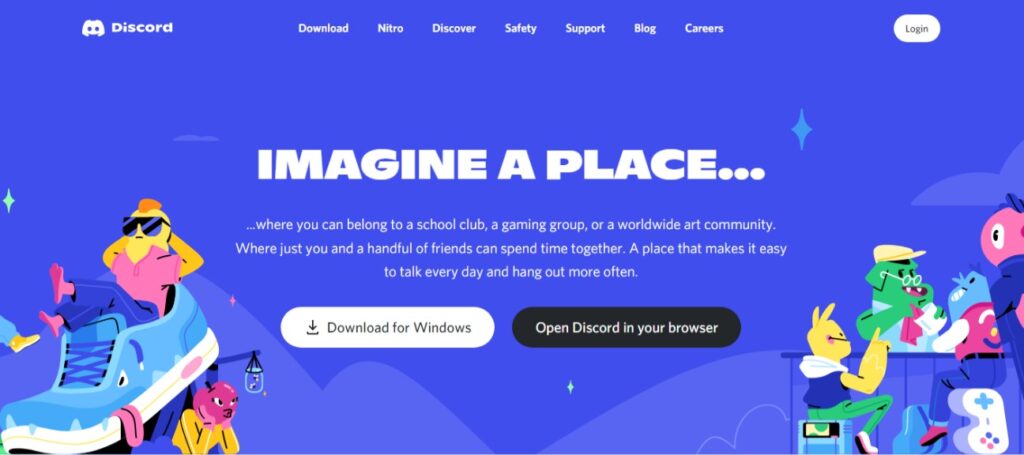
Discord is a chat app that originated as a way for gamers to connect outside of the limitations of the game they were playing. It is a great alternative to having a Facebook Group, particularly if your community engages with live streaming.
Key features:
- It allows users to talk, text, and video chat.
- Easy to manage your community with the help of Discord bots.
- Discord is free to use and download. They also offer Discord Nitro which is a premium version.
Limitations:
- Discord lacks monetization features.
- Mainly used by those in the gaming community.
Discord is an up-and-coming platform that is becoming mainstream for gamers to use, but it has a lot of potential outside this niche too.
Circle.so
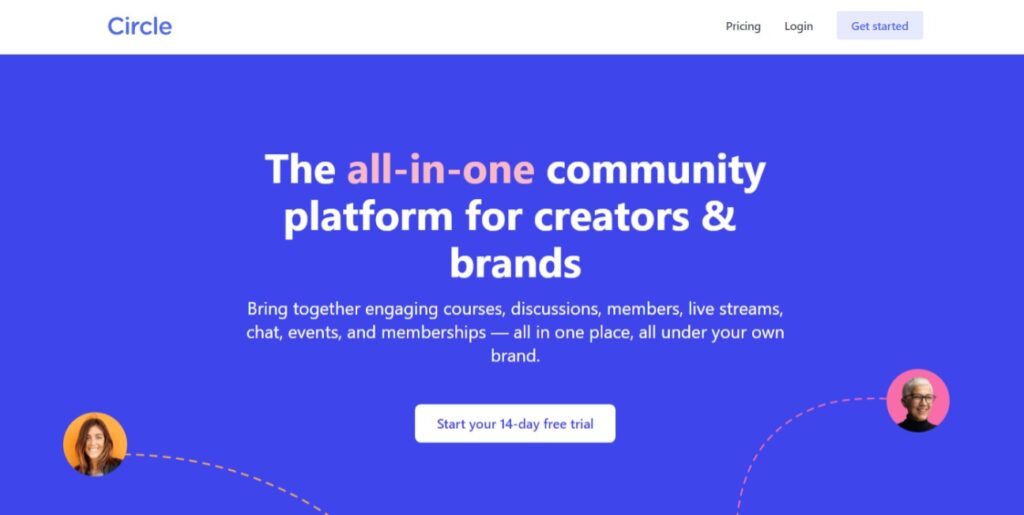
Circle is very similar to Facebook Groups, as it helps members connect with each other. Unlike Facebook, it cuts out all the distractions that could sidetrack your group.
Key features:
- Customize your own brand on the platform.
- Offers engaging courses, events, and memberships.
- Private messaging and group discussions.
- Unlimited event hosting and live streaming.
- Allows you to monetize your group through sales tools and subscription options.
Limitations:
- Not a free platform, but there are various pricing options.
- Takes some time to navigate the platform and build a group.
You can use Circle to create a thriving online group on your own terms by combining the interactive nature of a community with your content.
Tribe.so

Tribe.so is a community platform that is designed for the business industry. It offers companies customizable ways to engage their customers.
Key features:
- Gather actionable insights for their users.
- Has a Q&A forum for voting on solutions.
- Integrations with other apps.
- Ability to efficiently control posts.
- Offers rewards tools to retain customers.
Limitations:
- This is a niche platform for those with larger-scale businesses.
- There are different pricing options available for this platform.
Tribe enables you to engage with customers in a community setting that is more professional than mainstream social networks.
MemberDev
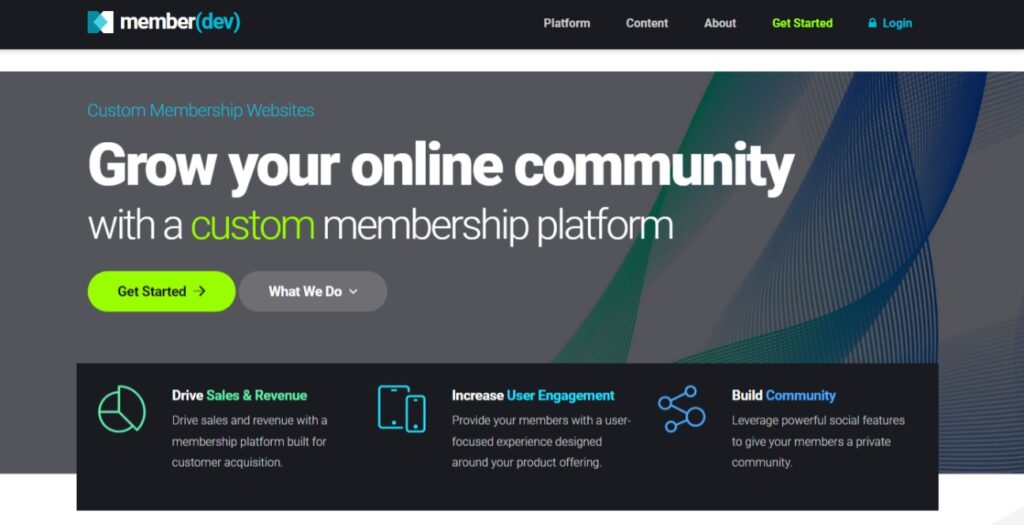
MemberDev is a flexible community platform that assists content creators in shifting their social media groups into a membership business. A major selling point for MemberDev is that they offer a great amount of customization for your personal group.
Key features:
- Ownership over user data.
- Typical social media features like member profiles and forums.
- Sales funnels and email marketing integration.
- Members-only live events.
Limitations:
- Their pricing is private and based on individual client’s needs.
No matter what field you are in – coach, blogger, or entrepreneur – MemberDev has created a space that prioritizes your desired user experience.
BuddyBoss
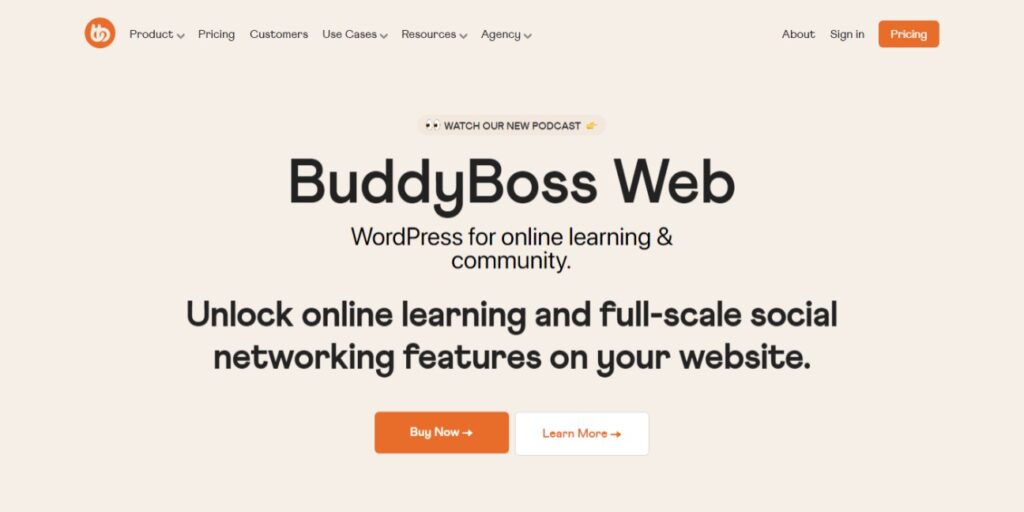
BuddyBoss is a WordPress plugin designed to help content creators curate their personal community platform.
Key features:
- Great user experience.
- Offers memberships, events, and courses.
- Integrates with other plugins to fill any gaps in their offerings.
- Ability to customize your website or app with 1000’s of integrations.
- Access 24/7 tech support.
Limitations:
- Not accessible to those who don’t have a WordPress site.
- Has an extra membership fee (apart from WordPress).
- Particularly for those with business ventures.
BuddyBoss allows you the freedom and control to design your own community space and customize your business to your liking.
Uscreen
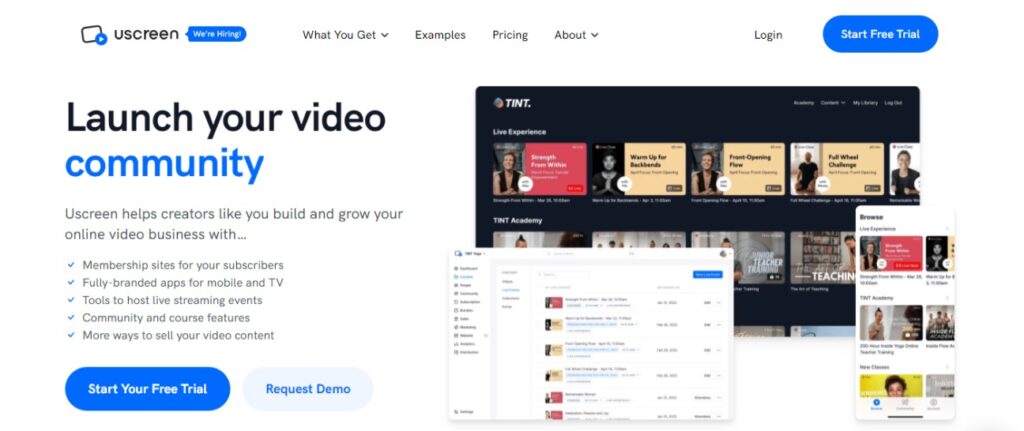
Uscreen has a lot to offer in the community space. They bring the tools needed to build connections and bond with your group.
Key features:
- Create your own website and apps.
- Share photos and text to a community feed.
- Set their own community guidelines and moderate posts.
- Create free or members-only content.
Limitations:
- Not a free platform, but there are different pricing options available.
- Take a little while to get the hang of this platform and create your space.
With Uscreen you are able to ignite discussions and host commenting, all while making money off your content.
Podia
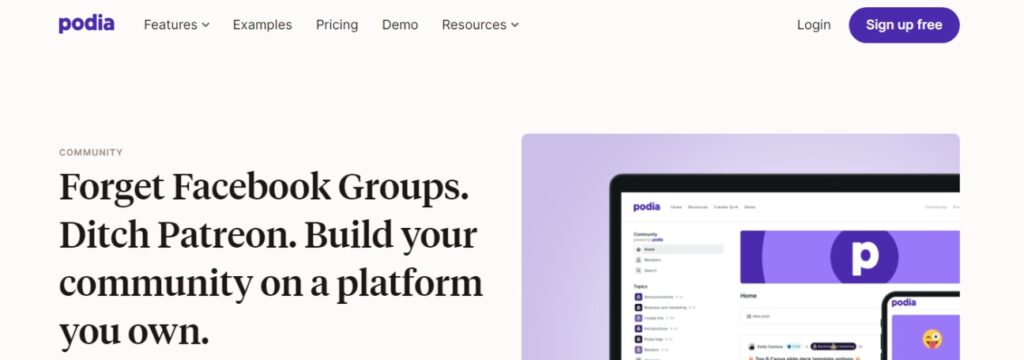
Podia is a great alternative to Facebook Groups for anyone looking to grow their online community, with their features being powerful and effective, yet simple to use.
Key features:
- Complete ownership over your online community.
- Control over how users interact in community groups.
- Monetize and sell products, share content, and run your community from the same platform.
- Free & paid online communities.
Limitations:
- The website builder isn’t as flexible as WordPress.
- Mainly for business creators with a niche community.
Podia really is an all-in-one tool that allows you to navigate through all aspects of creating an online community seamlessly.
Related: Podia vs Thinkific – A detailed comparison
Discourse
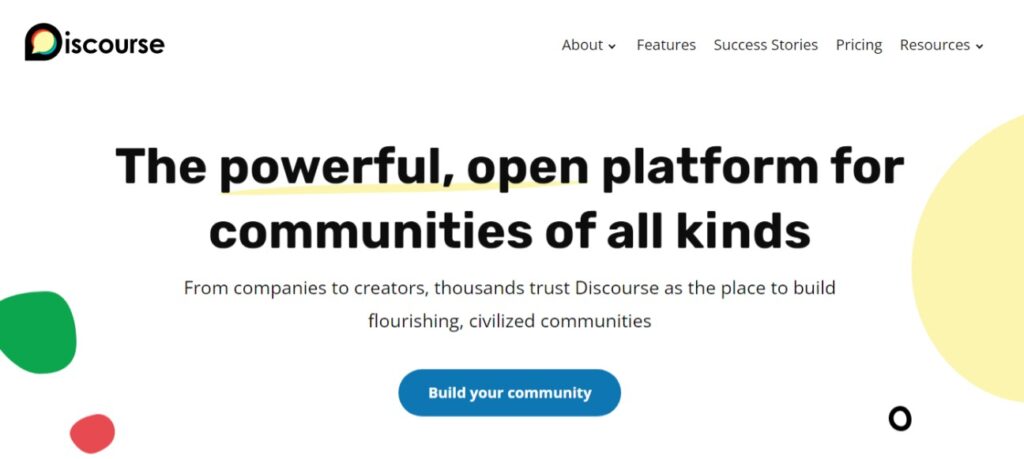
Discourse is an open-source discussion platform perfect for creating and expanding member communities. It allows you to build your community spaces freely, with the option to set up private spaces, public areas, and forums for your members to interact.
Key features:
- More flexibility and user control than with Facebook Groups.
- Assists with community-led moderation.
- Has multiple supported integration systems.
- Free platform.
Limitations:
- No ways to monetize your content.
- Not as user-friendly as Facebook Groups for community leaders.
Discourse is a great option for those who want to create truly unique spaces for their group members to interact online.
Patreon
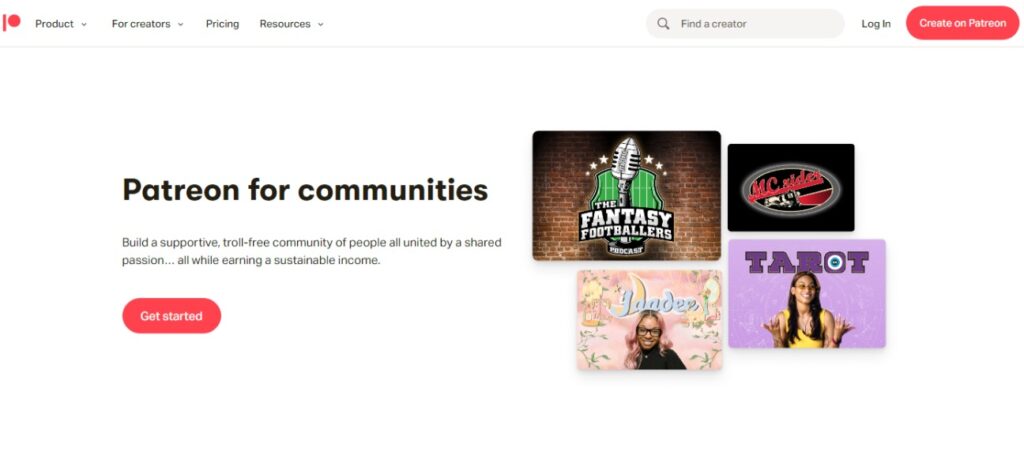
Calling all content creators (i.e. YouTubers and influencers); if you are looking for the best alternative to Facebook Groups, look no further than Patreon. It’s a membership platform that makes it easy for content creators to monetize their community through subscription services.
Key features:
- User-friendly way for content creators to monetize their audience.
- Ability to set up exclusive forums.
- Integration with Discourse, Discord, and WordPress.
Limitations:
- Lacks advanced features
- Not as much control compared to hosting your groups on your own website.
- Patreon takes a commission of your earnings.
This platform is great as it helps you to eliminate background web noise and provide a members-only space for your most valuable audience members to communicate on.
Slack
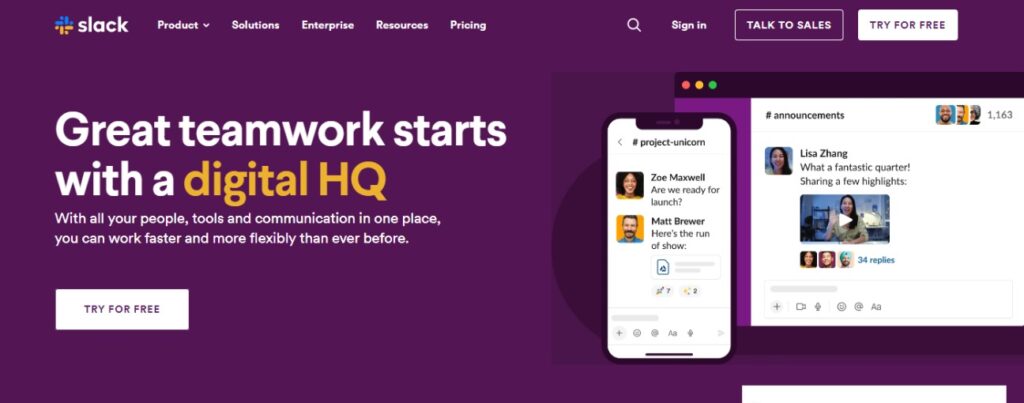
Now, calling all professionals and corporate teams… a perfect solution to Facebook Groups is Slack. On Slack, the center of your community is called a workspace. Within every workspace, you can create ‘channels’ for a variety of sub-topics, similar to a normal forum.
Key features:
- Great for professionals and business teams.
- Can handle high amounts of volume – unlimited number of members.
- Control channel posting permissions.
- Easy to stay organized and find information.
- There are audio and video call functions.
- Can tell when members are online.
Limitations:
- No direct monetization options – there is no way to charge members for access to your Slack community directly through the platform.
- No options to customize branding.
- Although the core features are included in the free plan, you receive many more benefits from the upgraded paid plan.
Slack is well known for being a workplace communication tool, but you can also use it as a meeting place for your group members to collaborate online.
Groups.io
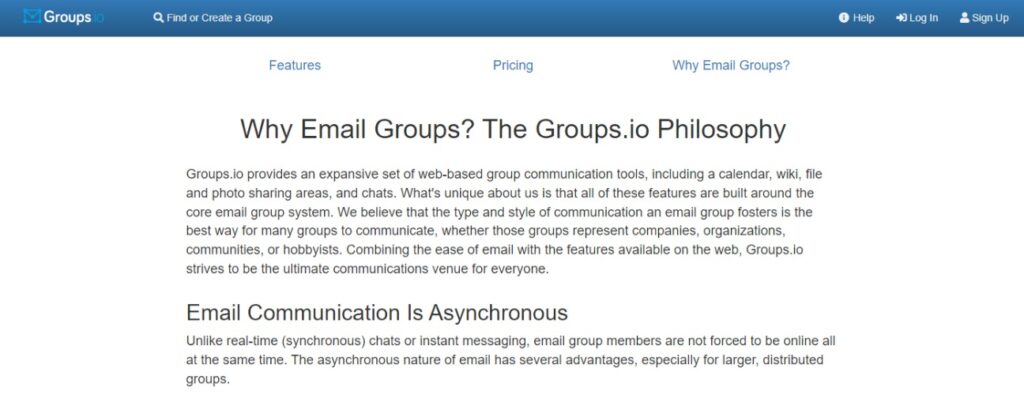
Groups.io is a free forum style platform. This platform is a communication venue that provides an expansive set of web-based group tools, including a calendar, wiki, file, photo sharing areas, and chats.
Key features:
- Admins can edit posts and comments.
- Looks like a traditional email platform.
- Simple and easy to use.
Limitations:
- To create a group, you have to go through a lengthy approval process.
- This platform is similar to Facebook, as they have total control over content and posts (this means anything can be taken down).
This social network provides web-based communication tools which are built around its core email group system.
MeWe
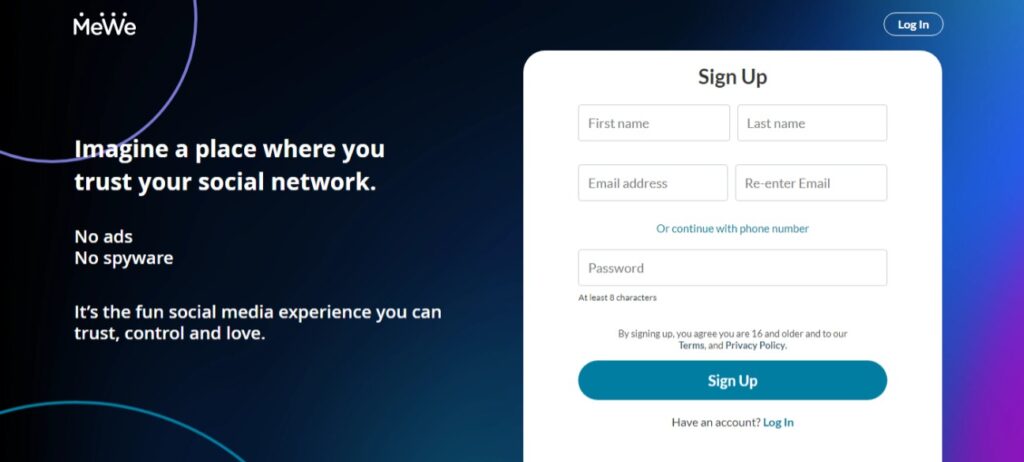
MeWe markets itself as the “next-gen social network.” It’s an app built with the latest social-sharing technology. This is for users who love the functionality of Facebook, but don’t want the ads or privacy risk.
Key features:
- Has private chats and groups.
- No ads, targeted content, and newsfeed-manipulating algorithms.
- Offers a newsfeed where you can tag members.
- Has featured categories for groups to join.
- Privacy protection is built into the design.
Limitations:
- No monetization options.
- Unable to customize your group’s brand.
MeWe is a popular online community for Gen Z people, and it has everything we love about Facebook, minus the clutter.
Humhub
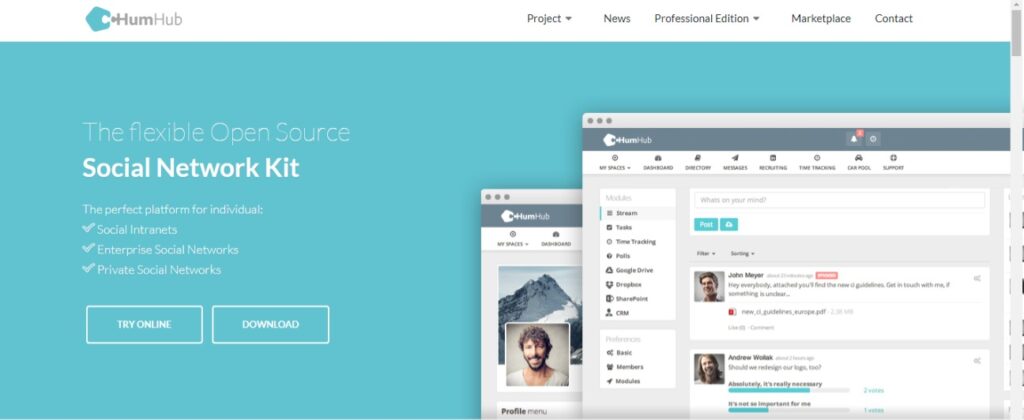
HumHub is a free social network software and framework built to give you the tools to make communication and collaboration easy and successful.
Key features:
- HumHub is completely open-source.
- You can extend HumHub by using third party tools, writing your own or connecting existing software.
- You are in full control of your data.
- Communicate like you already do in other social networks.
Limitations:
- The hosting, maintenance, and upkeep has to be done by you or your company.
- You’ll require engineering resources to develop new features.
With HumHub you can create your own customized social network that really fits your needs. Boost your business, support your customers, or teach your students… the list is endless!
Disciple
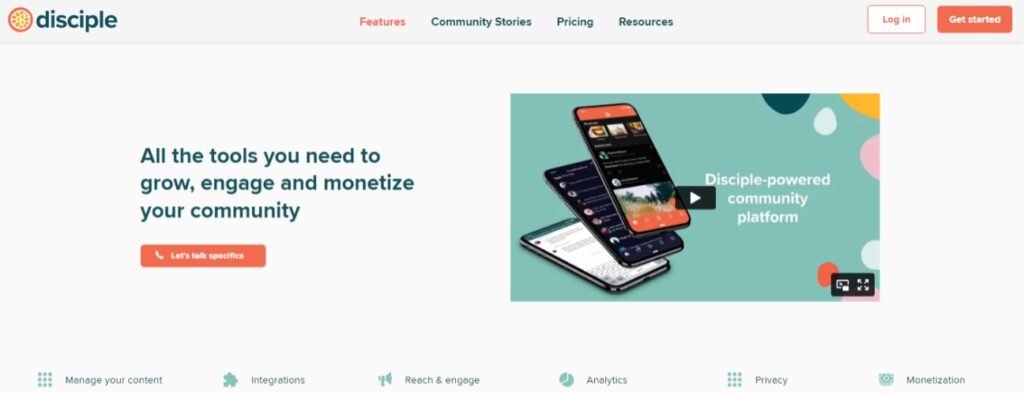
Disciple is a customizable social networking platform that offers great options for tailoring your brand for your members online.
Key features:
- Ability to customize your brand.
- Store and share your content from one central place.
- Has multiple layout options such as folders, groups, and lists to craft your community structure.
- Unlimited subgroups & content feeds.
- Monetize with online courses, memberships and subscriptions.
- Data is owned and managed by you.
Cons:
- There is no free option to create a group, but there are subscription options.
This platform allows you the freedom to create a community that is uniquely yours!
Diaspora
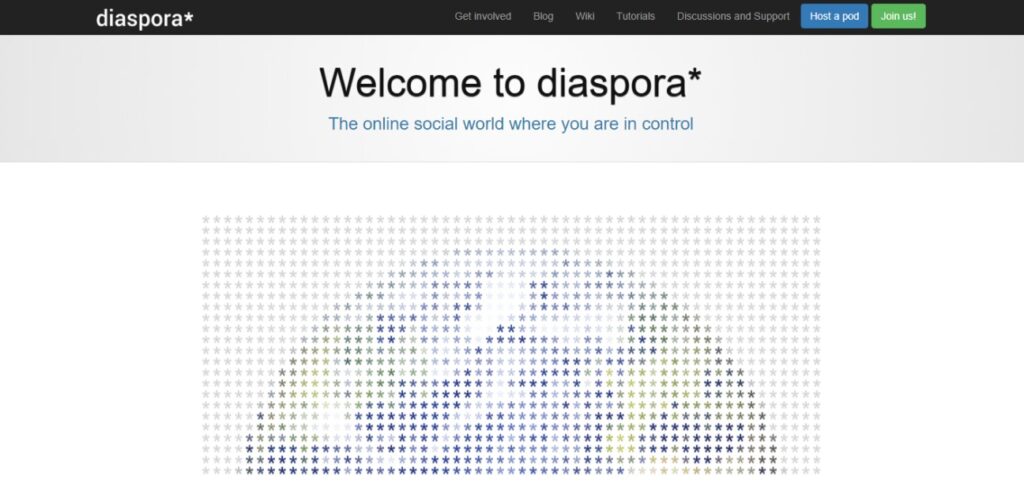
Diaspora is an online social network where you are in control. They have three “key philosophies” of decentralization, freedom, and privacy, Diaspora allows users to join “pods” which are independently run servers all over the world.
Key Features:
- Easy-to-use interface.
- Messaging, hashtags, and a chronological newsfeed untouched by algorithms.
- Allows you to share your posts on your other social media services. They currently support Twitter, Tumblr, and WordPress.
- Ad-free network.
Limitations:
- No monetization options for groups.
- Unable to customize the platform.
Diaspora is the best Facebook alternative for users who are serious about their privacy.
LinkedIn Groups
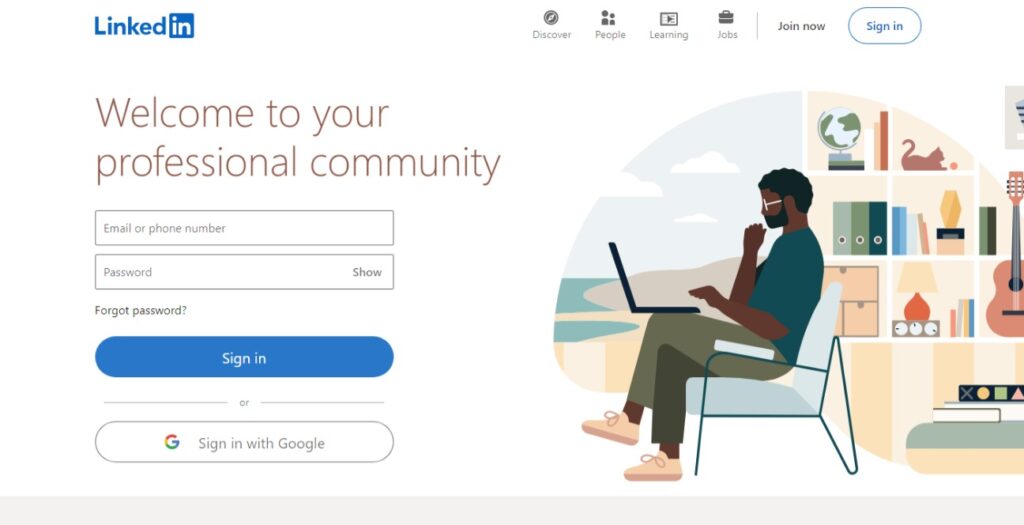
LinkedIn is one of the world’s most popular networking platforms and is best known as the go-to place for making business connections. It is very similar to Facebook, as it also operates as a way to grow your own community.
Like Facebook, LinkedIn has a groups function, which allows users to create and join groups, get involved in conversations, and share stories and posts with each other.
Key features:
- LinkedIn already has a large user base, making it easy to connect with people and get others to join your group.
- LinkedIn is a professional space, so you may not need to spend as much time moderating user behavior.
- User-friendly with easy social sharing functions.
- You can sign up for LinkedIn for free, and LinkedIn Groups are also free to create.
Limitations:
- There is a lack of group monetization methods available.
- Difficult to share live content on Linkedin.
- Courses aren’t connected to groups.
- Hard to see if group members are engaged as activity is rarely featured on user timelines.
LinkedIn is a great place to create communities focused on business, professional skills, and more.
Bottom line…
There you have it! A list of 21 of the best Facebook Group alternatives. There are a ton of different options to choose from, depending on your niche and what you are searching for in an online community.
From scalability and adapting for growth to customizing your group’s brand to privacy and data protection… these alternatives to Facebook Groups range in style and give you plenty of options to keep expanding your online community. Good luck!
Interested in more community-building info? Learn how to build an online community step-by-step in this blog!
This article was originally published in December 2022, and was updated in February 2024 to be even more useful.





